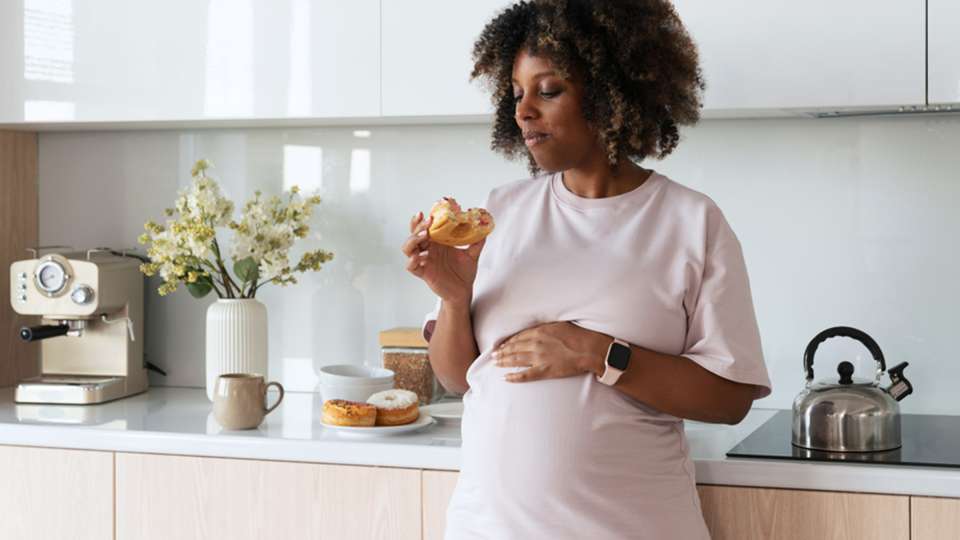
You’ve probably heard people say that if you’re pregnant, you’re eating for two. And it’s true — everything you eat helps the fetus develop and grow stronger.
But you may not be eating what you think you are. Lots of food contains traces of the materials it comes into contact with — primarily plastics. So you’re not just eating that prepackaged gluten-free brownie but tiny bits of chemicals used to make the wrapper, too. One of the most common to make it into your food are compounds called phthalates.
For you, this may not be a big problem. But for your fetus, it could pose a risk.
What are phthalates and how do they get into food?
Phthalates are chemicals used to soften plastics and other substances. There are dozens of different phthalates added to everything from PVC to makeup, shampoo and conditioner to things like, yes, food wrappers.
Phthalates get into food by touching it, either via its packaging or the materials used to prepare or serve it, like gloves worn by fast food employees. That’s why fast food and packaged ultraprocessed foods like cupcakes and cookies, soda, energy bars, crackers, pizza, sausages and bacon often contain phthalates. But they can be found in any food that is packaged in plastic, even whole foods like frozen vegetables and fruit.
Are phthalates dangerous?
The Food and Drug Administration (FDA) has limited the use of certain phthalates in food packaging, but the agency has not banned them outright. The FDA did, in 2022, request more data on the safety of phthalates.
Research on phthalates done in animal models shows that the chemicals can cause cancer, developmental problems and reproductive issues. Some phthalates can cause skin irritation or nausea in humans, and the chemicals have been linked with issues in babies, from low birth weight to premature birth, as well as the development of conditions like autism and attention-deficit hyperactivity disorder (ADHD).
New research shows that phthalates may pose a risk to a fetus depending on what the pregnant person eats.
“When moms are exposed to this chemical, it can cross the placenta and go into fetal circulation,” says senior author Dr. Sheela Sathyanarayana, a UW Medicine pediatrician and researcher at the Seattle Children’s Research Institute.
The study included a group of more than 1,000 pregnant women in the southern part of the United States and showed that women with lower incomes and education levels were more likely to eat lots of ultraprocessed foods during pregnancy, and in turn have higher concentrations of phthalates in their pee.
This study is the first to show the connection between higher phthalate exposure and lower socioeconomic status, according to the research team.
“We don’t blame the pregnant person here,” says lead author Brennan Baker, a postdoctoral researcher in Sathyanarayana’s lab. “We need to call out manufacturers and legislators to offer replacements, and ones that may not be even more harmful.”
How can pregnant people avoid phthalates?
The best way to avoid extra phthalate exposure during pregnancy is to eat whole foods when possible, which means lots of veggies, fruit, lean meats and whole grains.
Most packaged foods won’t list plastic made with phthalates; still, Sathyanarayana recommends checking food labels on any packaged or processed food you buy.
“Look for the lower number of ingredients and make sure you can understand the ingredients,” she says.
Barbara Clements and McKenna Princing contributed to this article. A version of this story originally appeared on the UW Medicine Newsroom.

 Healthy ideas for your inbox
Healthy ideas for your inbox





